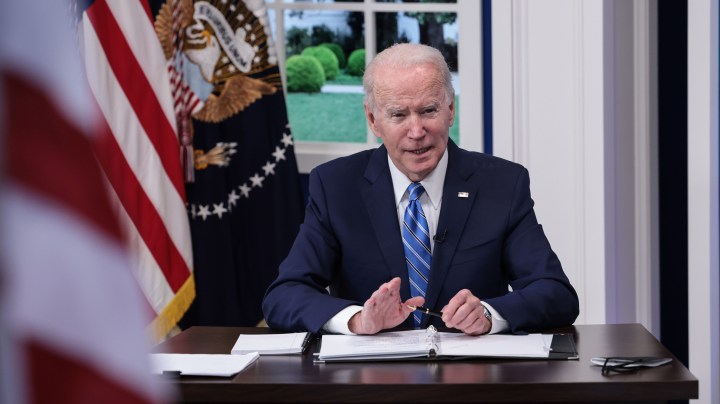
President Biden signs defense spending authorization bill into law
President Biden signs defense spending authorization bill into law

President Joe Biden signed next year’s National Defense Authorization Act into law this week. It authorizes $770 billion for defense spending — a big increase from last year’s authorization and $25 billion more than Biden originally requested.
The spending law authorizes money for new weapon systems, gives service members a pay increase and also expands paid family leave for primary caregivers in the military to 12 weeks, according to Ben Gitis at the Bipartisan Policy Center.
“Before this, they had six weeks of paid parental leave. Secondary caregivers — which are typically men — they only had three weeks,” he said. “And so they also brought that up to 12 weeks.”
It’s also the first defense spending authorization bill signed into law since the U.S. withdrew from Afghanistan, according to Travis Sharp at the Center for Strategic and Budgetary Assessments.
“And so there will be an opportunity for Congress in the year ahead to make decisions on how it wants to move that money around,” he said.
Sharp said lawmakers often try to throw as much as they can into the defense spending bill. Compromises are often struck at the last minute. Overall, he said the annual defense authorization bill is considered “must-pass” legislation.
“In fact, this year is the 61st consecutive year that Congress has passed and the President has signed a Defense Authorization bill,” he said.
Part of that is because Congress doesn’t want to look soft on defense. Another reason? Military spending is tied to jobs throughout the country, said William Hartung at the Quincy Institute for Responsible Statecraft.
“There’s really kind of a bias toward the military, and militarization of our budget versus the other needs that are emerging,” he said.
That’s a big reason why this bill passed relatively smoothly, Hartung said, when you compare it to recent social spending legislation that hasn’t made it through Congress.
There’s a lot happening in the world. Through it all, Marketplace is here for you.
You rely on Marketplace to break down the world’s events and tell you how it affects you in a fact-based, approachable way. We rely on your financial support to keep making that possible.
Your donation today powers the independent journalism that you rely on. For just $5/month, you can help sustain Marketplace so we can keep reporting on the things that matter to you.











